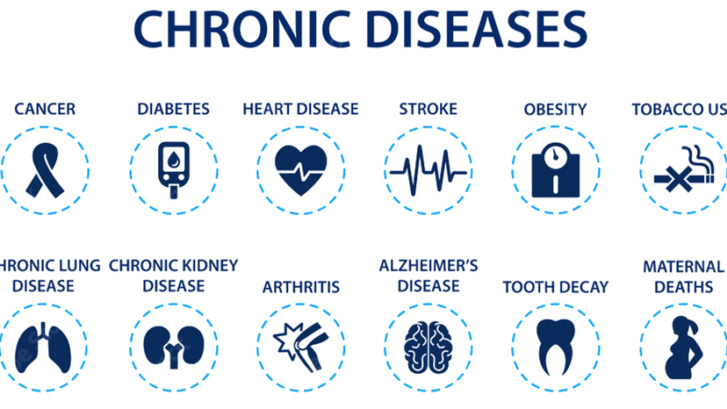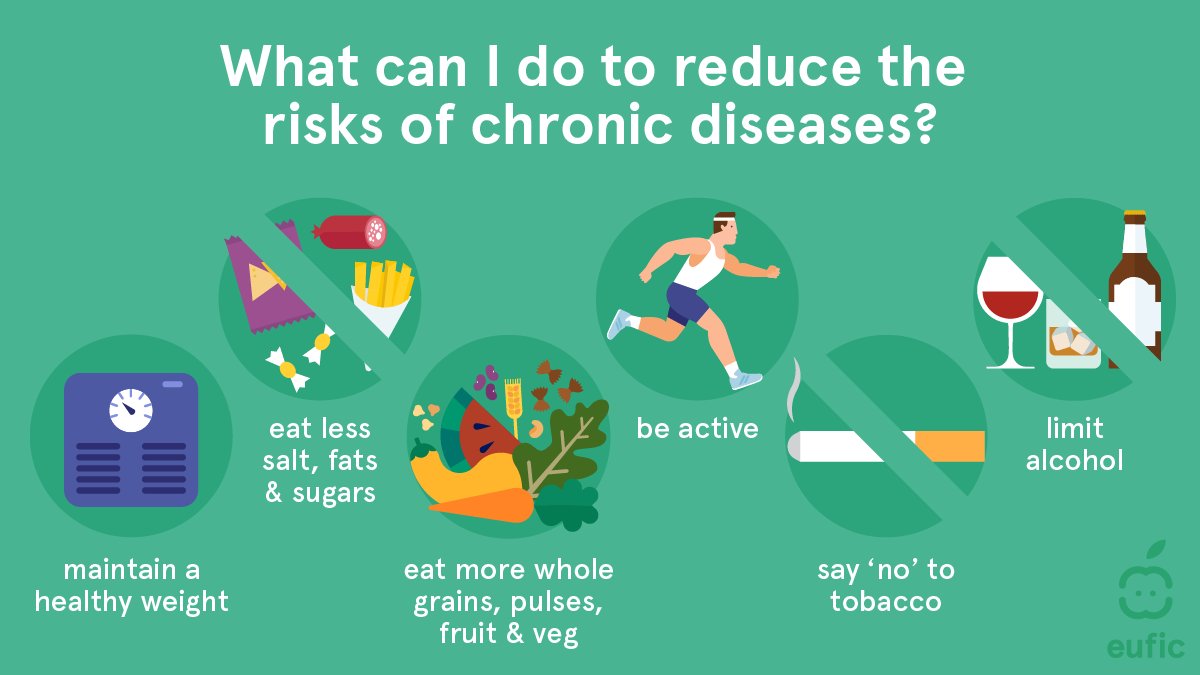Chronic diseases are long-lasting health conditions that often progress slowly over time. These illnesses, including heart disease, diabetes, cancer, and respiratory disorders, are among the leading causes of death and disability globally. While some risk factors for chronic illnesses, such as age or genetics, are unavoidable, many can be mitigated through lifestyle choices. Effective management can also improve quality of life for those living with these conditions.
This guide explores the causes of chronic diseases, their impact on overall health, and actionable strategies for prevention and control, empowering you to take charge of your well-being.
Risk Factors Associated with Chronic Diseases

Chronic conditions typically arise due to a combination of behavioral, environmental, and genetic factors.
Behavioral Risk Factors
Unhealthy lifestyle choices are significant contributors to the development of chronic illnesses.
- Poor Diet: Consuming excessive processed foods, sugar, and unhealthy fats increases the likelihood of obesity, heart disease, and type 2 diabetes.
- Physical Inactivity: Sedentary habits weaken cardiovascular health, raise cholesterol levels, and promote weight gain.
- Smoking and Alcohol Use: Tobacco is linked to cancer, respiratory diseases, and heart issues, while excessive alcohol damages the liver and elevates blood pressure.
Environmental and Social Influences
Factors beyond individual behavior also play a crucial role.
- Pollution: Long-term exposure to air or water pollution is associated with respiratory problems and certain cancers.
- Economic and Social Disparities: Limited access to nutritious food, healthcare, or safe environments increases vulnerability to chronic diseases.
Management Strategies for Chronic Conditions

Effectively managing chronic diseases is essential for enhancing life expectancy and minimizing complications.
Medical Management
- Regular Monitoring: Routine checkups and screenings help track disease progression and identify potential complications early.
- Medication Adherence: Following prescribed treatments, such as blood pressure or diabetes medication, is vital for controlling symptoms and preventing deterioration.
- Collaboration with Healthcare Providers: Open communication with doctors ensures tailored care plans that address individual needs.
Lifestyle Adjustments
Adopting healthier habits can significantly improve outcomes.
- Balanced Nutrition: Incorporate whole grains, lean proteins, fruits, and vegetables into daily meals to reduce inflammation and support bodily functions.
- Physical Activity: Engage in moderate exercise, such as walking or swimming, to boost metabolism and maintain cardiovascular health.
- Stress Reduction: Mindfulness practices like yoga and meditation alleviate stress, which can exacerbate conditions like hypertension and diabetes.
Preventing Chronic Illnesses

Prevention is a powerful tool in reducing the burden of chronic diseases.
Healthy Living
- Maintain a Healthy Weight: Obesity is a common precursor to numerous conditions, including joint disorders and cardiovascular issues.
- Avoid Tobacco and Excessive Alcohol: Abstaining from smoking and moderating alcohol consumption lowers the risk of respiratory and liver diseases.
- Stay Active: Aim for at least 30 minutes of physical activity most days of the week to enhance overall well-being.
Early Detection
- Screenings: Regular health checks can identify early signs of chronic illnesses, allowing for timely interventions.
- Vaccinations: Immunizations protect against preventable diseases like hepatitis, which could otherwise lead to chronic conditions.
Supporting a Loved One with Chronic Illness

Caring for someone with a chronic disease can be emotionally and physically demanding but is critical to their well-being.
- Encourage Compliance: Help them adhere to medical advice and remind them to take medications on time.
- Provide Emotional Support: Chronic illnesses often take a mental toll, so offering empathy and understanding is invaluable.
- Promote a Healthy Environment: Foster positive habits like shared physical activities and preparing nutritious meals together.
Take Charge of Your Health
Understanding chronic diseases and their risk factors is the first step toward prevention and effective management. Whether it’s making healthier choices, staying informed about early warning signs, or supporting someone with a chronic condition, small actions can have a profound impact.
What steps have you taken to reduce your risk or manage a chronic illness? Share your experiences in the comments below! Explore our website for more expert advice and health tips, and subscribe to our newsletter for the latest updates on chronic disease prevention and care. Let’s prioritize health together!

Leave a Reply